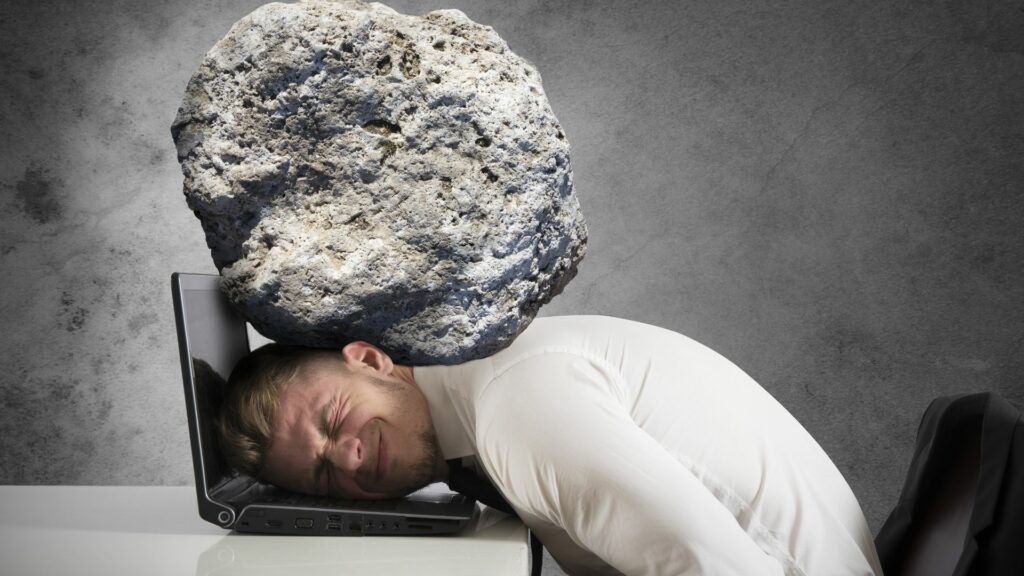Contents
- 1 Workplace Stress Management & Role Of Exercise In Managing It
- 2 What Is Stress?
- 3 Causes Of Stress
- 4 Effects Of Stress On Body
- 5 Stress Management
- 6 Mental Illnesses That Can Be Managed With The Help Of Exercises?
- 7 How Exercise Promotes Positive Well-Being?
- 8 Types Of Physical Exercise For Workplace Stress Management
- 9 Conclusion
Workplace Stress Management & Role Of Exercise In Managing It
The stress of everyday life has many negative effects on people. It can lead to mental and physical health issues, like depression, anxiety, eating disorders, chronic pain, and other stress-related conditions. Stress is also a major factor in the development of heart disease. Managing stress is crucial for maintaining your health and well-being. The resources below should be helpful for anyone who wants to learn more about workplace stress management techniques or find stress relief methods that work best for them.
What Is Stress?
 Stress is your body’s reaction to changes in your life. There is no avoiding stress because it comes with everyday, normal, and major life changes such as marriage, divorce, or the death of a loved one.
Stress is your body’s reaction to changes in your life. There is no avoiding stress because it comes with everyday, normal, and major life changes such as marriage, divorce, or the death of a loved one.
The aim should not be to eliminate all stress, but rather to eliminate unneeded stress and effectively manage the rest. Many individuals face several of the same causes of stress, but each person is different.
Causes Of Stress
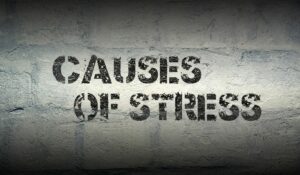 Stress can be caused by a variety of factors known as “stressors.” Because our perceptions of what we consider to be “stressful” are based on our own combination of personality features, available resources, and regular thought processes, a circumstance may appear to be “stressful” to one person but merely “challenging” to another.
Stress can be caused by a variety of factors known as “stressors.” Because our perceptions of what we consider to be “stressful” are based on our own combination of personality features, available resources, and regular thought processes, a circumstance may appear to be “stressful” to one person but merely “challenging” to another.
Simply put, one person’s stress trigger is not the same for everyone. Different people have different triggers that make them stressed. There are some situations that make most people super stressed and those can increase the risk of burnout.
When we are in high demand but have little control or few choices, it causes stress. We might also feel stressed when we don’t feel equipped or when people judge us harshly. Many people have problems and they are stressed. They might be stressed with their work, relationships, money, or health. You can learn skills to deal with those things that will reduce your stress.
Effects Of Stress On Body
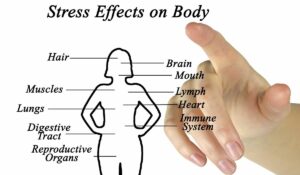
Stress is different for every person. We all react in different ways when we are stressed. One person might get a headache, and another might find that they feel sick to their stomach. Some people may experience any of a number of other symptoms as well.
Stress can make us feel different. It can be mild or life-threatening too. Stress can change the way we feel and how our body feels. It is important to have a plan for it so it doesn’t cause problems with your health.
Stress Management
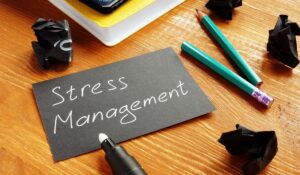
Many different methods can be used to effectively control stress. The ideal workplace stress management programs integrate a variety of stress relievers that address physical and emotional stress while also assisting with resiliency and coping skills development.
If you’re enduring a lot of stress, you risk jeopardizing your entire well-being. Stress has an important impact on your emotional balance and physical health. It reduces your capacity to think clearly, function effectively, and enjoy life. It may appear that there’s nothing you can do about stress. Bills will never cease coming, there will never be more time in the day, and your job and family duties will continue to take up a lot of your time. You have a lot more influence than you might believe.
Breaking the grip stress has on your life allows you to be more pleased, healthy, and productive. The ultimate aim is a well-rounded existence, with time for work, socializing, and enjoyment—as well as the resolve, to bear up under strain and confront difficulties head-on. Workplace stress management isn’t one-size-fits-all, and that’s why it’s essential to try things out and figure out what works best for you.
Use Quick Stress Relievers
 Some stress relief techniques can work in just a few minutes. These help you feel better right away. They can do many things like calming your body’s stress response or helping you sleep at night.
Some stress relief techniques can work in just a few minutes. These help you feel better right away. They can do many things like calming your body’s stress response or helping you sleep at night.
When you do not feel stressed, you think more about problems and try to solve them. Then there is less chance that you will get mad at people. This can help your relationships stay healthy. If you are nipping your stress response in the bud, then you will not have chronic stress.
Quick stress relievers like breathing exercises, for example, may not always help you to feel less stressed. But they can calm your body after you are stressed.
Develop Stress-Relieving Habits

When you’re in the midst of a hectic scenario, some approaches may be inconvenient to utilize. However, if you practice them on a daily basis, they can aid you in managing stress by allowing you to reverse your stress response more quickly and simply.
Lifestyle skills, like exercise or meditation, can help you feel better when you are really stressed. You may not need to use them all the time. But it is important to make these healthy habits a regular part of your life.
Eliminate Stressors When You Can
 Although you may not be able to entirely do workplace stress management or even the most significant stressors, there are things you may do to decrease it and make it manageable. It can help to cut out stress. For example, if you end a bad relationship, you will be able to deal with other things better since you will feel less overwhelmed.
Although you may not be able to entirely do workplace stress management or even the most significant stressors, there are things you may do to decrease it and make it manageable. It can help to cut out stress. For example, if you end a bad relationship, you will be able to deal with other things better since you will feel less overwhelmed.
Physical Exercise For Mental Clarity
 Physical exercise can help with mental well-being and even reduce symptoms of mental health issues such as depression and anxiety. While the physical health benefits of activity are obvious, the connection between exercise and mental wellness is sometimes neglected. Physical exercise has been shown to forestall mental health issues from developing. Physical activity has also been proven to help cure the symptoms of a variety of mental disorders.
Physical exercise can help with mental well-being and even reduce symptoms of mental health issues such as depression and anxiety. While the physical health benefits of activity are obvious, the connection between exercise and mental wellness is sometimes neglected. Physical exercise has been shown to forestall mental health issues from developing. Physical activity has also been proven to help cure the symptoms of a variety of mental disorders.
Mental Illnesses That Can Be Managed With The Help Of Exercises?
In certain cases, mental health professionals advocate exercising as part of the treatment for specific mental disorders. The following are some of the possible mental health benefits of exercise:
Anxiety and Stress
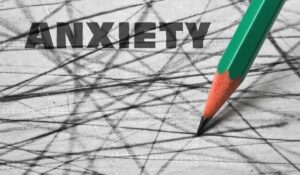 Exercise reduces anxiety sensitivity. A regular exercise program can also aid in the reduction of symptoms associated with other frequent co-occurring diseases, such as irritable bowel syndrome (IBS).
Exercise reduces anxiety sensitivity. A regular exercise program can also aid in the reduction of symptoms associated with other frequent co-occurring diseases, such as irritable bowel syndrome (IBS).
Exercise promotes the development of new neurons in the hippocampus, a region of the brain that is crucial for memory. Depression and anxiety are two common mental health problems that may be treated with CBD. According to some studies, CBD’s ability to stimulate neurogenesis might help relieve symptoms of several psychiatric disorders including depression and anxiety. During times of stress, animal research has revealed that increased neurogenesis may help the brain relax.
Attention-Deficit/Hyperactivity Disorder (ADHD)
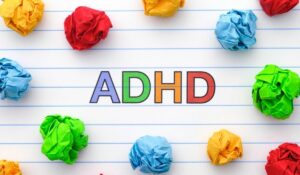 For children with ADHD, exercise may enhance motor skills and executive function. This appears to hold true for both moderate and intense exercise, although exercising for a longer duration might lead to greater results. Cardio has been shown in studies to be particularly beneficial for children and adults with ADHD.
For children with ADHD, exercise may enhance motor skills and executive function. This appears to hold true for both moderate and intense exercise, although exercising for a longer duration might lead to greater results. Cardio has been shown in studies to be particularly beneficial for children and adults with ADHD.
Depression
 Light, moderate, and intensive exercise have all been shown to lower the severity of depression. In fact, physical activity may be just as effective as other treatments in treating depression. It’s conceivable that doing regular exercises lowers inflammation, which is beneficial to people with this condition.
Light, moderate, and intensive exercise have all been shown to lower the severity of depression. In fact, physical activity may be just as effective as other treatments in treating depression. It’s conceivable that doing regular exercises lowers inflammation, which is beneficial to people with this condition.
Panic Disorder
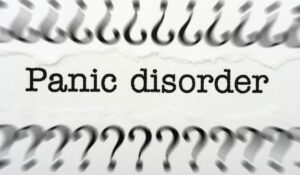
Exercise is a proactive approach to relieve tension and reduce worry for persons who have panic disorder. In certain circumstances, exercise may help to decrease the severity and frequency of panic attacks.
Post-Traumatic Stress Disorder (PTSD)
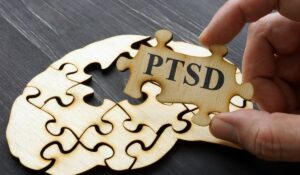
People who have experienced trauma and/or served in the military with PTSD may benefit from exercise. Exercise may aid in the treatment of symptoms including depression, anxiety, sleep difficulties, and heart issues associated with PTSD.
How Exercise Promotes Positive Well-Being?
Exercise can also help you feel good when you are already feeling good. More physical activity makes people feel happier, have more energy, and sleep better.
Physical activity is good for your mind and for workplace stress management. It can be good for stress, depression, and anxiety.
- Exercise decreases stress hormones. Exercise gives your body a natural boost of endorphins that make you feel good. It also helps lower the stress hormones like cortisol in your body.
- Physical activity distracts you from negative thoughts and emotions. Physical activity can help you with your problems. You will forget about them when you are doing the activity. Physical activity can also make you feel better.
- Exercise promotes confidence. Exercise can help you lose weight, tone your body, and maintain a healthy glow. It can also make you look better in your clothes and have a good mood.
- Exercise can be a good source of social support. Exercising with others can help us to feel less stressed. We know this because it is written in books that other people have read. This means that you might want to join an exercise class or play softball in a league, even if you are one person.
- Better physical health may mean better mental health. Stress can cause illness. If you improve your health, you will be less stressed because it won’t be hard to get better. It will help you feel better because it will strengthen your body. So that other illnesses don’t affect you as much or at all.
- Exercise provides a buffer against stress. This can help people to feel less stressed. When people exercise. It helps them to not get so overwhelmed in stressful situations. Exercise is good for you and also makes you feel better when you have a lot going on.
Types Of Physical Exercise For Workplace Stress Management
Fortunately, there are several forms of exercise that can benefit your mental health and can help with workplace stress management. It’s critical to discover exercises that you enjoy doing, whether it’s weightlifting or jogging. Here are five different types of exercise that may be beneficial to one’s mental health.
Yoga
Yoga can be mild or difficult, depending on the level. The most frequent form of yoga (hatha yoga) includes bodily postures (asanas), controlled breathing, and meditation sessions.
Yoga is a low-risk therapy for the body and mind. After just one session, many people report experiencing the beneficial effects.
Yoga has been studied by several scientists. And It helps in-

- To decrease physiological excitement,
- Your heart rate is lower
- Lower blood pressure
- Reduce breathing rate
- The amount of stress you’re putting your body under.
- Reduce your anxiety and sadness.
- Increase your energy and feelings of well-being.
Tai Chi
Tai Chi is a Chinese martial art that combines meditation and rhythmic breathing in slow, graceful body movements and postures (also known as forms). It improves balance, coordination, strength, flexibility, energy levels, relaxation response, immune function, muscular endurance, and self-confidence.

- Reduce stress
- Decreased blood pressure
- Reduction in anxiety level
- Reduction in depressed mood
- High self-esteem
Aerobic Exercise
 There is a lot of research about how aerobic exercise is good for your brain. These exercises are running, cycling, or swimming.
There is a lot of research about how aerobic exercise is good for your brain. These exercises are running, cycling, or swimming.
Although some studies have been about how exercise can be helpful for people with depression, panic disorder, and OCD, there’s also evidence that it might help those with social phobia. Some people like to do exercise for a long time. Other people prefer to do it all at once. But both types of exercising will help improve your mental health.
Doing aerobic exercise for about five to ten minutes can make you feel better and less anxious. But if you do it all the time, like 10 or 15 weeks, it will make your mental state better.
Conclusion
We hope you found some helpful resources and information on managing stress. If you want to learn more about workplace stress management techniques or find the best methods of relief for your personal needs, we’ve included a list below with some great resources. Whether it’s breathing exercises that help calm your mind and relax your body, mindfulness meditation classes led by experts in this field, an app like Headspace which teaches guided meditations from expert teachers around the world- there is something out there for everyone. Take care of yourself.
For more information, please contact MantraCare. Stress can have both physical and mental effects on the body, leading to negative consequences such as anxiety, depression, and even physical illnesses. If you have any queries regarding Online Stress Counseling experienced therapists at MantraCare can help: Book a trial Stress therapy session
